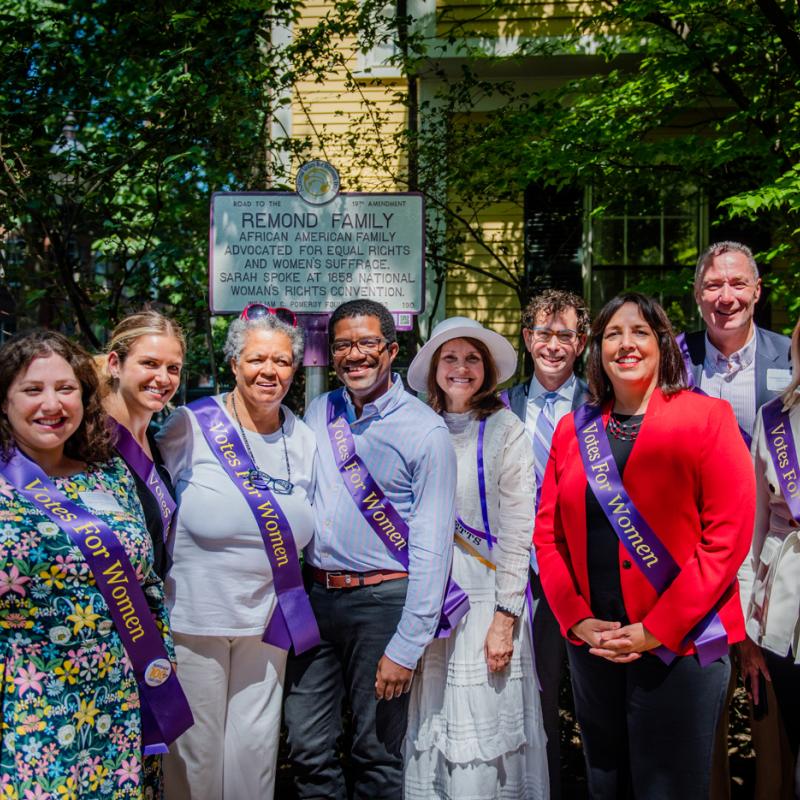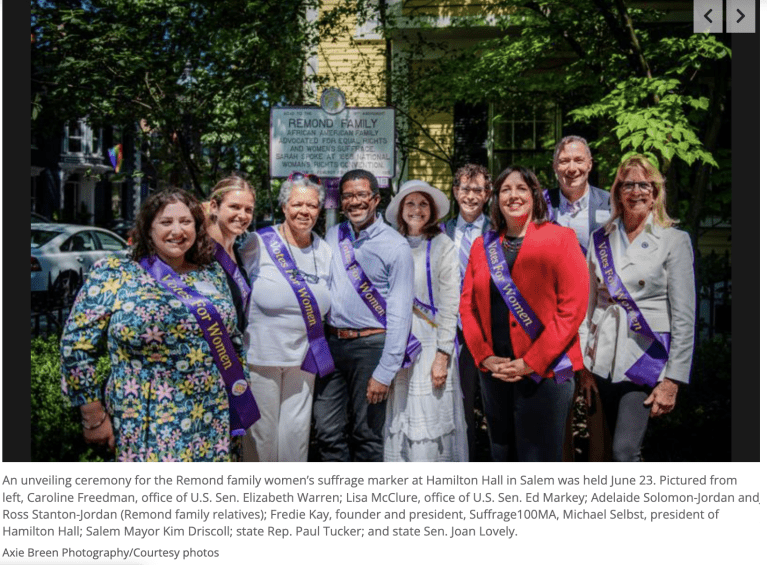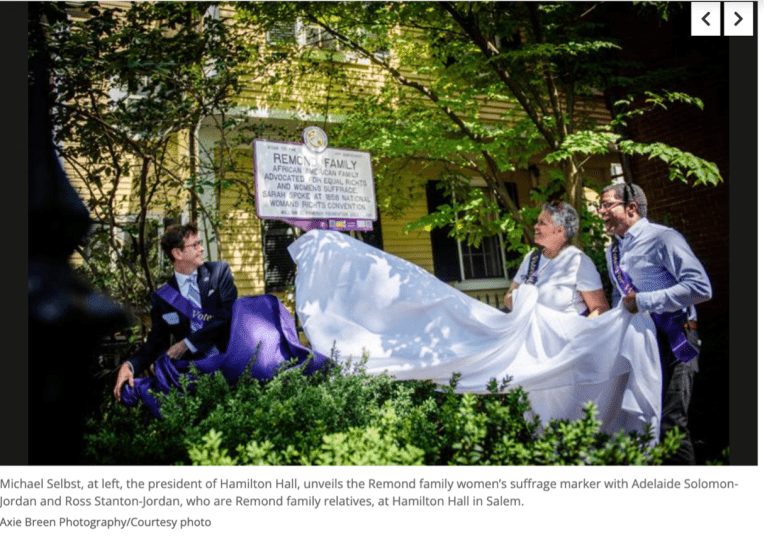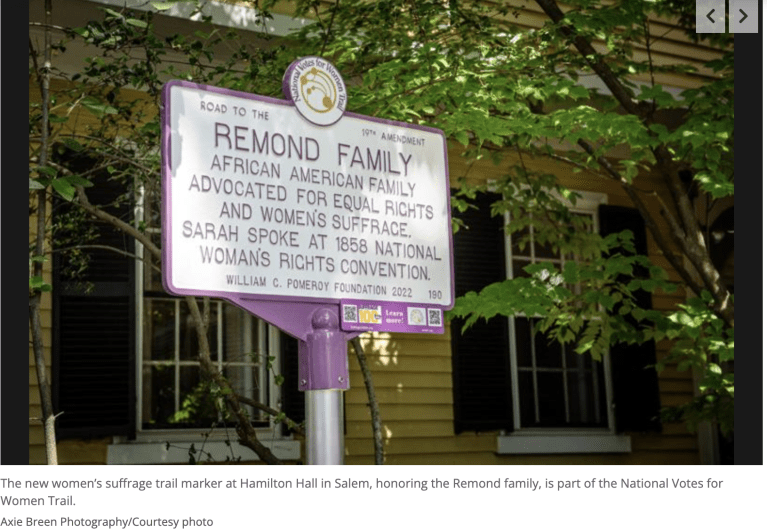Editor's note: the following story originally appeared in the Salem News, written by News Staff.
SALEM - Suffrage100MA and Hamilton Hall in Salem recently unveiled a historic women's suffrage marker honoring the legacy of Salem activists, the Remond family.
The marker, unveiled June 23, celebrates the Remonds' suffrage and encourages passers-by to learn more. It is one of five new Massachusetts marker sites on the National Votes for Women Trail. The project is funded through a grant by the William G. Pomeroy Foundation, sponsored by the National Collaborative for Women's History Sites' National Votes for Women Trail, and coordinated by Suffrage100MA.
A free Black family, the Remonds were committed to the abolition of slavery, women's suffrage movement, and desegregation of schools in Salem. Parents John Remond (1785-1874), a lifelong member of the Massachusetts Anti-Slavery Society, and Nancy Lenox Remond (1786-1867) served as caretakers of Hamilton Hall at the turn of the 19th century, where they also ran their catering business. Well-respected throughout Salem for their culinary skills, hospitality, business acumen, and social advocacy, they raised their eight children to fight for their rights and the rights of others.
Charles Lenox Remond (1810-1873), their eldest child, was among the first Black abolitionist lecturers - and staunchly supportive of women's right to join the fight. In one telling example, when the 1840 World Antislavery Convention in London voted that women would not be allowed to vote or participate and had to sit separately behind a curtain, he and William Lloyd Garrison joined the women's section in an act of solidarity. Charles gave anti-slavery speeches throughout the U.S. and abroad, sometimes with his sister Sarah.
Sarah Parker Remond (1824-1894) was a stalwart member of the Salem Female Anti-Slavery Society, the New England Anti-Slavery Society, and the Massachusetts Anti-Slavery Society. She gave her first abolitionist address at the age of just 16 and spoke nationally and internationally on the topics of racial and gender equity. She was a speaker at the 1858 National Woman's Rights Convention in New York.
Caroline Remond Putnam (1826-1908), another sibling, was repeatedly mentioned in the abolitionist newspaper, The Liberator, served in leadership positions for the American and Massachusetts Anti-Slavery Societies, and spoke at the 1869 annual meeting of the New England Woman's Suffrage Association.
"We're excited to celebrate the extraordinary legacy of the Remond family at Hamilton Hall with this marker, which will also help educate the Salem community and visitors about the vital role they served in the progress of our country's history," said Michael Selbst, president of the board of directors for Hamilton Hall. "As advocates for human rights, the Remonds remind us all to stand up and raise our voices today for those experiencing discrimination."
"It is our city's privilege and responsibility to recognize and honor the crucial impact of the Black community - as enslaved persons, free citizens, soldiers, abolitionists, suffragists, educators and leaders - on our history and on shaping who we are today," said Salem Mayor Kim Driscoll. "The Remond family suffrage marker today joins other Salem landmarks in sharing and celebrating the city's legacy of Black leaders, including Remond Park, named in honor of Charles and Sarah, and Charlotte Forten Park, named for the abolitionist and women's rights activist."
U.S. Sens. Elizabeth Warren and Ed Markey both praised the Remonds as groundbreaking 19th century activists for gender and racial justice at home and abroad.
Warren said that with the country's voting rights now under siege, the Remond family's fight for abolition and equal voting access inspires others to follow their lead and continue to fight for justice in the electoral system.
"It is important to recognize that some white women's suffrage groups would not include Black members, and that after the 19th Amendment was ratified in 1920, discriminatory laws continued to restrict voting access for many Americans of color," said state Sen. Joan Lovely, D-Salem. "The Remond Family had steadfast perseverance, pushing through layers of resistance so their message of social justice could be heard, and it's our duty to honor that legacy."



